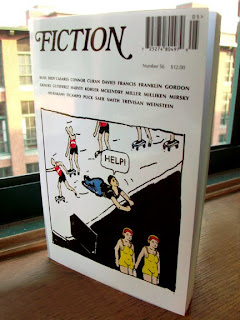Try to Remember by
Iris Gomez is transporting. In many ways reading Gomez’ debut novel is like sitting across from a thoughtful storyteller who painstakingly and lovingly recreates the story of Gabriela, an intelligent, sensitive Colombian teenager growing up in Miami in the late ‘60s and early ‘70s.
Gabi’s story is about many things: a teen girl coming of age and discovering herself during the American women’s liberation movement; an immigrant family living in fear of deportation; a young woman torn between loyalty to the family who depends on her to help manage the household and her need to escape her crazy parents and live the life she wants; and a daughter and sister who struggles to comprehend her increasingly unstable father, spending hours typing his progressively nonsensical letters (more like manifestos) to companies and the government.
Iris Gomez, a lawyer with expertise in immigration rights, was born in Cartagena, Colombia. She has also published books of poetry. Elements of her experience are expertly woven into the fabric of the novel, which presents Gabi’s episodic story arc, covering about three or four years of her life, with honest and compelling language and pacing that never flags. Lyrical yet straightforward, Gomez inserts compelling details that spring Gabi’s story to life.
You feel the claustrophobia of Gabi’s family’s small house. The constant Miami heat, especially during the torpid summer months. The harrowing hurricane that hits Miami and almost carries away her father and their house. Gabi’s high school experience getting into trouble from teachers for speaking Spanish in class. Gabi’s first experiences with boys and the men who whistle at her whenever she walks through her neighborhood.
One of the central storylines the novel expertly showcases is the steady decline of Gabi’s father, who descends from loving, hardworking family man to an unemployable hothead who lives in a haze of confusion and at times is overcome with an uncontrollable, lashing rage. Gabi, her mother Evi, and her two younger brothers never know what will set him off—it could be a chaste kiss between husband and wife on TV or the sight of a male friend driving Gabi home from school.
Even as his behavior turns violent, Evi keeps blinders in place and believes Roberto will be himself again someday and that his temporary condition is exhaustion born of a life of hard work supporting the family. Instead of taking him to a doctor, Evi feeds him a daily regimen of downers to keep him docile. It’s a Band-Aid to an obviously wider and deeper problem.
The genius of Try to Remember is how Iris Gomez tells Gabi’s story in honest, clear language with moments of lyrical transcendence with sympathy for her characters without a false note. This is not an easy accomplishment. The point of view is close first, which pulls us quickly into the Gabi’s thoughts and experiences. The novel could have been bogged down with flashbacks and constant remembrances of the way things used to be.
Gabriela does harbor memories, but these fleeting, necessary snapshots expose a time when her father was normal, doting, and employable. There is no secret from the past that haunts the present. At once bittersweet and hopeful, the story of Gabi’s day-to-day life, her struggles and accomplishments, is told with a minimum of melodrama and the novel is stronger for it.






